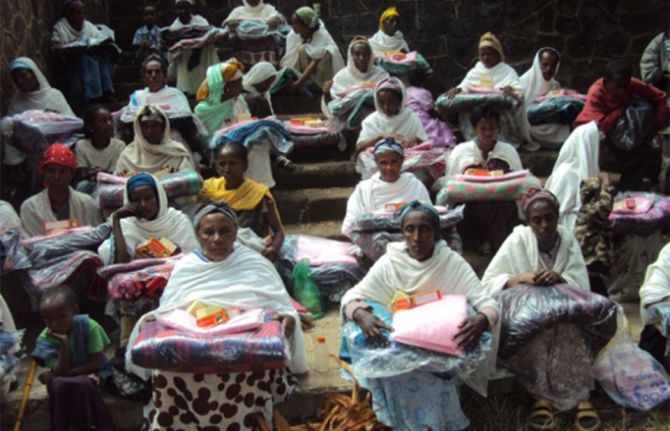
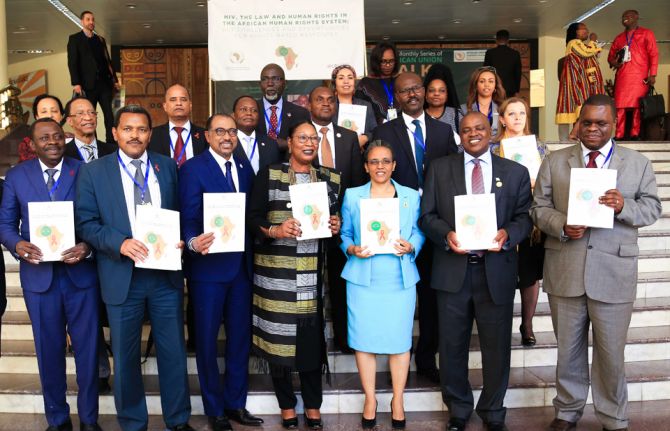
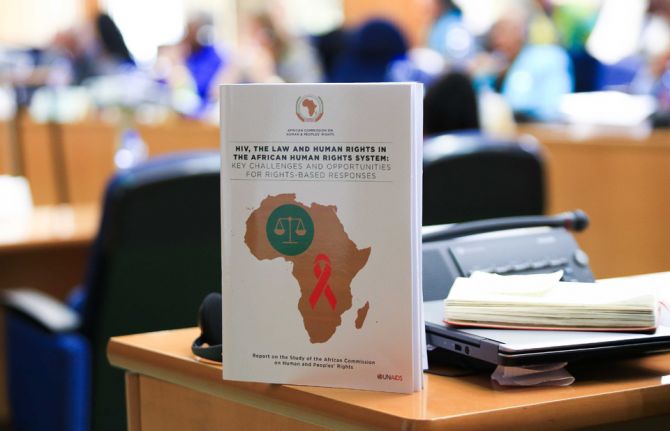
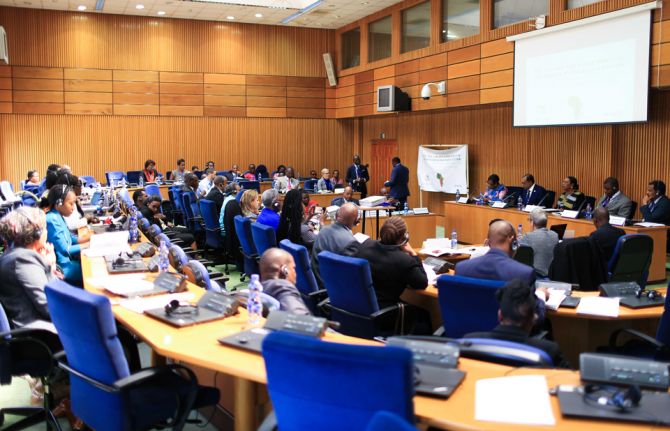
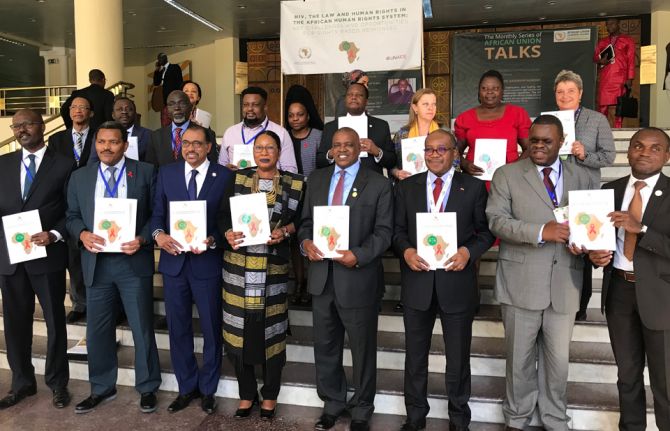
Update
African human rights body urges renewed efforts on human rights in response to HIV
31 January 2018
31 January 2018 31 January 2018On 27 January, the African Commission on Human and Peoples’ Rights (the African Commission) launched a groundbreaking report, HIV, the law and human rights in the African human rights system: key challenges and opportunities for rights-based responses.
The report addresses the key human rights challenges in the response to HIV, including inequality and discrimination towards people living with HIV, access to treatment and restrictive intellectual property regimes, conflict and migration, coercive HIV testing and counselling, restrictions on civil society and the criminalization of people living with HIV and key populations.
While noting the progress made in the response to HIV in Africa, the report expresses concerns about the populations left behind—young women and girls, prisoners, sex workers, men who have sex with men, transgender people and people who use drugs.
As well as the challenges, the report also highlights good practices from across the continent for responding to them, including law and policy reform, progressive court decisions and programmes to advance human rights protection and access to HIV and health services.
The development of the report is the result of three years of work involving inputs from various stakeholders, including people living with and affected by HIV, civil society and members of key populations.
A launch event held during the 30th Ordinary Session of the African Union was attended by the First Lady of Ethiopia in her capacity as Chairperson of the Organisation of African First Ladies against HIV/AIDS and by the Vice-President of Botswana, the Chairperson and Vice-Chairperson of the African Commission and the Executive Director of UNAIDS.
The participants welcomed the comprehensive report on HIV and human rights and its bold recommendations and committed to support the implementation of the report’s recommendations to advance human rights and social justice in the response to HIV in Africa.
Quotes
“This report salutes Africa’s progress against HIV. But it also reminds us that the job is not yet done. The report calls for renewed efforts to address stigma and discrimination and to pay greater attention to the effective and full protection of the human rights of all the populations that are marginalized and left behind in our communities.”
“The law and human rights are incredibly important in the context of global health, and they are essential to an effective response to HIV. This report makes the basic point that we must place people, rights and communities at the centre of the response to HIV. It is great to see the African Commission on Human and Peoples’ Rights speak so boldly on zero discrimination and the right to health through this report.”
“I welcome this report, which addresses issues that are so important to the Organisation of African First Ladies against HIV/AIDS, including ending discrimination, combatting gender inequality and advancing access to HIV prevention, treatment and care services for all.”
“Côte d’Ivoire has made important progress against HIV and the response to the epidemic continues to mobilize the highest level of government. We are committed to strengthening our efforts against HIV discrimination and to advance access to justice to end AIDS.”
“From the beginning, we had recognized the importance of engaging the African Commission on Human and Peoples’ Rights and supporting its work on HIV. We are pleased to have partnered with the African Commission, UNAIDS, the AIDS and Rights Alliance for Southern Africa and other allies to support the report. We will continue working to ensure that recommendations are used by our communities to advance human rights protection and access to health services.”

